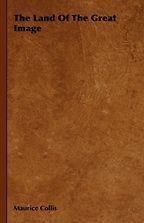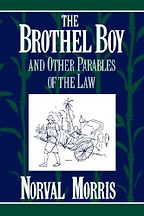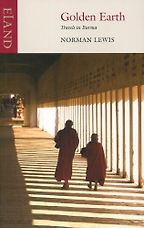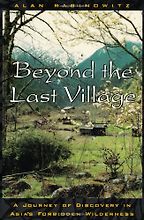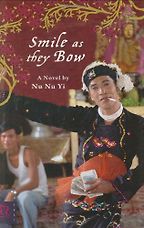In selecting my five books on Burma, I’ve tried to cover a wide historic span. I’m also reminded once more of the regrettable dearth of books written in Burmese – novels especially – that are available outside Burma. Precious few have been translated into English. And censorship makes many of them scarce or unavailable even within the country.
That is very sad. On a more positive note, before we talk about your five books can you tell me how you feel about the release of Aung San Suu Kyi?
Compared with her other releases, this one seems both more momentous and more moving somehow. The expectations, the stakes, are so much higher now. When I was a child and longing for the thrill of a miracle, I was once taken to the site (this was in Rangoon) of an alleged ‘apparition’. The Virgin Mary, or a simulacrum, was supposed have made an appearance. I remember waiting in the hot sun for hours, increasingly alarmed by the crowds, willing the Virgin to hurry up and reveal herself. I also remember crying inexplicably when it was time to leave. But I wasn’t crying from disappointment. I was crying at the thought of the huge letdown for all those hundreds of people praying, hoping for a vision that would save their souls, their lives.
How sad, but does her release make you more hopeful about the situation in Burma?
I have been leery of miracles ever since then. But hope is a kind of moral duty in the case of a country like Burma. Despair we already have. Fortunately, unlike the Blessed Virgin, Aung San Suu Kyi offers visible, tangible proof of her commitment to the faithful.
Let’s start with your first book, The Land of the Great Image by Maurice Collis.
This is the earliest book on my list. Collis was an administrator in colonial Burma for a good 20 years, and his many books on the country (Trials in Burma, Lords of the Sunset, inter alia) are among the best of the late colonial period. This one is a curious departure – an account of a Portuguese missionary’s hair-raising travels between 1628 and 1636, from Goa to the west coast of Burma, in the Bay of Bengal. (Not so curious a departure perhaps, since, as Collis reminds us, ‘Portuguese Asia is the seed from which grew the British Dominion in Asia.’)
The journey of Sebastião Manrique, the Augustinian friar on whose diaries the book is based, is fraught with horrors of the kind especially reserved for missionaries braving the Far East. Pirates and slave-raiders. Tigers and floods. Pagan rites. The mass suicide of Hindu pilgrims in shark-infested waters. Ants.
Manrique eventually ends up in Arakan, then a powerful kingdom on Burma’s west coast, where he finds himself at the seething centre of an Oriental court. Even for a worldly Portuguese friar schooled in the intricate workings of the Inquisition, the court of King Thiri-thu-dhamma is bewildering, if not terrifying – riven as it is with occult rituals, murderous intrigues and obsession with white elephants.
Apart from being terrific entertainment, and wonderfully droll in places, Land of the Great Image makes an important contribution to the literature of dynastic lunacy. The same blend of megalomania and mysticism witnessed by Manrique in the 17th century – the same delusions of divinity inherent in Burmese despots – are in florid evidence to this very day.
Your next book jumps to the 1920s, which was when Collis was actually living in Burma. This is The Brothel Boy by Norval Morris.
Yes, it so happened that another icon of colonial writing was there at the same time: Eric Blair, aka George Orwell. And Blair/Orwell is the protagonist of The Brothel Boy, a collection of stories by the late Norval Morris, a legal scholar better known for his expertise on criminology than on Burmese history.
I first came across Morris through a series of University of Chicago monographs titled ‘Parables of the Law’. These appeared to be summaries of legal cases arising in Burma and mediated by a British official named Eric Blair. Intrigued, I wrote to its author. This led to an exchange of letters and telephone calls in the course of which – or so I like to think – the seeds for The Brothel Boy were sown.
So you helped inspire The Brothel Boy?
Oh, only in the sense that I suggested publishing the separate parables, so called, as a book. It actually took a while for the idea to cohere – and for Morris, who was then emeritus professor at the University of Chicago law school, to find a publisher. When the book, published by OUP in 1992, finally arrived on my desk (with an inscription I’ll always treasure), I kissed it.
Eric Blair, as we see him in these stories, is a young magistrate wrestling daily with moral, ethical, and legal ambiguities during his tour of duty in Moulmein. But instead of the mature George Orwell telling the reader what it is like to shoot an elephant mainly to avoid looking like a fool in front of the natives, the young Eric Blair in The Brothel Boy lets the reader into his private doubts and deliberations as he struggles to do the right thing. Each story is both a parable and a legal precedent, on issues as charged as child custody, domestic violence, and capital punishment.
Norval Morris was such a modest and unassuming correspondent that it was really only after his death in 2004 that I discovered the range of his formidable publications on crime and punishment. What impressed me most when I knew him was the rather rare phenomenon of a lawyer seeking clarity in the law through fiction!
Next up is a book set in the newly independent Burma. This is Norman Lewis’s book Golden Earth.
Yes, Golden Earth happens to be one of my favourite travel books of all time. That it’s set in Burma is mere frosting on the cake. But what frosting: Burma in the pre-military days of early 1950s as seen through the eyes of the inimitable Norman Lewis. Lewis travels through a country threatened by anarchy as Communist factions, ethnic armies, paramilitary groups and government forces fight it out across the length and breadth of the land.
But what a rich landscape unfolds along his path, with eccentrics and curiosities to greet him at every turn. In Rangoon he is approached by an ex-headmaster hoping to publish a 94,000 word treatise on ‘the three things for which Burma is famous…snake charming, the playing of rattan football, and the destruction of the invading forces sent by a Ming Emperor’. On a visit to the infamous Insein prison, the author is given a tour by a Chaucer-quoting director-general of prisons. Hitch-hiking from Mandalay to Muse in the Shan State, Lewis is picked up and taken to the police station, and there treated in a manner so courteous that he can’t tell whether he’s being subjected to arrest or state hospitality. At the airport, he joins passengers waiting for a plane four days overdue – until an official appears and goes round ‘whispering to the various groups, as if a great man had died, that the flight had been cancelled’.
The account of a lorry ride to Lashio remains a small sparking gem for me, even after many readings. I’ve yet to see a better appreciation of the genius of Burmese drivers in handling ancient motor vehicles, for a start.
Ah, for the days when it was possible to roam the Golden Earth with impunity, as Lewis did – with nothing worse to fear than dacoits, Communist insurgents, the occasional crackpot and stray dogs that bite you on the leg ‘without any particular animosity’.
Tell me about your next choice, Beyond the Last Village by Alan Rabinowitz .
Alan is a wildlife zoologist and his book takes us a half-century ahead, on a different kind of journey: a harrowing 500-mile trek from Putao, in the Kachin hills of Burma, to a no-man’s land at the foot of Himalayas. It’s difficult to say which is the greater feat: the author’s travels themselves, or his success in winning government cooperation for a scheme to establish a vast national park in that remote region.
The 1993 expeditionary force led by Rabinowitz consists of Burmese soldiers, porters, scientists (including an orchid collector) and a Buddhist monk who develops a touching crush on their leader. Forging through a wilderness of ecologically varied life zones, through an area ‘where the sun bear overlapped with the Himalayan black bear’, the party ends up in the snowy environs of the very ‘last village’ in the Adung Wang valley. Along the way, Rabinowitz spots the red goral, the golden takin, the wild serow – creatures almost mythic in their rarity. In the rugged highlands of the great boundary divide (where Tibet, Assam, and Burma meet), he encounters a world where the earth is ploughed by human beasts of burden, and the main source of meat is a primitive species little known outside the region. He discovers no less than four as yet unclassified mammals – including a species of deer completely new to science – and comes into contact with such solitary peoples as the world’s only Asian pygmies, a tribe poignantly aware of its impending extinction from in-breeding.
Like all ‘scientific’ expeditions, the journeys in Beyond the Last Village turn out to be as much about the human species as about wildlife. Both are accorded compassion and respect in this deeply moving report of ‘a world that might have disappeared before we even knew it existed’.
Your last book is a contemporary novel: Smile as They Bow by the prominent Burmese writer Nu Nu Yi.
This book was short-listed for the Man Asian Literary Prize in 2007. It’s a quirky, gritty love story that takes place within the subculture of nat worship. Nats are the spirits that dominate popular religious belief, and nat-worship is to Burmese Buddhists as, say, santeria is to Haitian Catholics. The annual nat festivals are noisy, glittery events that draw hordes of pilgrims; and officiating at these festivals are the nat-gadaw, the spirit mediums (or ‘wives’), a confraternity of cross-dressers to whom money and other gifts are offered for their intercession with the nats.
Smile as They Bow takes place in Taungbyon, a town near Mandalay, where one of the biggest nat festivals is held each year. Daisy Bond is the nom-de-guerre of a splenetic 60-year-old nat-gadaw whose young assistant and lover, Min Min, is driving him mad with jealousy. Besieged by clamouring clients, mortally wounded by suspicions that Min Min is cheating on him, the foul-mouthed Daisy heaps abuse and humiliation on his young lover. The boy is in fact secretly in love with Pan Nyo, a beggar girl with the voice of an angel, and wants to marry her. But the love that conquers all is not always young love, oh no, as Daisy and Min Min will discover.
A simple story on the face of it – yet it took 12 years for the censors in Burma to allow the publication of Smile as They Bow. Reading between the lines, it’s not difficult to see why. Spirit worship, homosexuals, beggars, exploitation, poverty, greed – these are subjects abhorred and banned by repressive regimes the world over. How much more so when laughter and heartbreak enliven the offending text. Read it for yourself and laugh. Then read it and weep.
Five Books aims to keep its book recommendations and interviews up to date. If you are the interviewee and would like to update your choice of books (or even just what you say about them) please email us at [email protected]
Five Books interviews are expensive to produce. If you've enjoyed this interview, please support us by donating a small amount.
